- The Scotsman provides in-depth coverage of Scotland's fevered preparations for the papal visit, and the unique roles of those involved -- among them Monsignor Michael Regan ("carrying the bones of St. Andrew") and liturgical director Father Andrew McKenzie (ensuring the distribution of communion to 70-80,000 in 30 minutes) to the 800-strong choir. (September 4, 2010).
- Pope Benedict XVI will bless a mosaic of St David with holy water from Wales during his visit to Westminster Cathedral (The Catholic Herald September 3, 2010):
The Pope will sprinkle the mosaic – which has only just been completed – with water from St Non’s well in Pembrokeshire. The water is believed to have healing properties.
Canon Christopher Tuckwell, administrator of Westminster Cathedral, said it was part of the Holy Father’s “outreach to Wales and to the people of Wales”.
- The Scotsman predicts that drivers will face "widespread chaos" across central Scotland during Pope Benedict XVI's visit:
More than 200 roads will be closed or have parking restricted in Edinburgh and Glasgow as part of the one-day tour, with rolling closures of sections of the M8 as the papal motorcade makes its way west during the evening rush hour.
An expected 100,000 people will turn out to see the Popemobile travel through Edinburgh, with a further 85,000 anticipated for a Mass at Bellahouston Park in Glasgow.
- The Pope has refused to broadcast on Radio 4's Thought for the Day during his UK visit, complains the Daily Mirror's Kate Mcmahon. CatholicCulture's Phil Lawler reveals the bias:
Notice how the report is worded: not that the Pope “was unable to” address the radio audience, or “could not find time” to make the appearance, or even “declined” the invitation. No; he “refused.” The choice of that word suggests that Radio 4 had a right to the Pope’s presence; that the Vicar of Christ was rude to turn down the invitation. Or maybe he had some ulterior motive for declining the opportunity to address the radio audience? What is he trying to hide?!
- Gay and lesbian Christians have criticised secularists planning to protest during the pope's visit to Britain for their "unhelpful and counterproductive" tactics The Guardian September 1, 2010).
- BBC unveiled unveiled more details of its extensive plans for coverage of the forthcoming UK visit by Pope Benedict XVI, with more than 10 hours of live broadcasting on BBC1 and BBC2 (The Guardian August 31, 2010).
- Hospital staff across central Scotland will be placed on high alert during the papal visit, prompted by concerns over the pontiff's health (Evening Times September 5, 2010)
Pope Benedict takes medication for a heart condition following a mild stroke in 1991.
A year later he suffered haemorrhaging after he cut his head in a fall, also believed to have been caused by a stroke.
Last December, traditional Christmas midnight Mass was held two hours earlier than scheduled because he was tired. The Pope also recently broke his wrist after slipping.
Concern has been raised that congestion on Glasgow’s Kingston Bridge could put his life at risk in an emergency.
- Organisers of the papal visit have put online three computer-generated images of the sanctuary for the beatification Mass at Cofton Park, prompting the Telegraph's Damien Carlson to wonder whether the English bishops were going "for the Scientology look", and Ignatius Press' Carl Olson to proclaim: "Nobody can do ugly quite like Catholics!". Meanwhile, the blog Wheat and Weeds offers a comparison of what the altars looked like in similar situations ("my takeaway is that the US did the best of anyone in coming up with something that looked Catholic. A tent still looks like a tent").
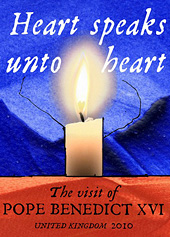 Salt + Light Television reveals its exclusive page devoted to the UK visit:
Salt + Light Television reveals its exclusive page devoted to the UK visit:Our full coverage of Pope Benedict XVI’s Apostolic Journey to the United Kingdom begins September 16th at 5:30am ET with the arrival of Pope Benedict in Scotland, and wraps up four days later on September 19th when the Holy Father departs from Birmingham for Rome.
Among those joining host Matthew Harrison will be Salt + Light Vatican Correspondent Alicia Ambrosio in London, and Catholic News Service’s Vatican Bureau Chief John Thavis, who is traveling with the Holy Father in the UK.
Follow our blog in the lead up to the trip, and for addresses and homilies during the trip, and keep in touch on our facebook page too.
Watch our live coverage online, or on your iPhone 3Gs/4G.
- John Allen Jr. (National Catholic Reporter) asks Four questions about the pope's trip to the UK:
1. Is this the most challenging trip of Benedict's papacy?
Read his insightful column.2. Overall, what do you expect?
3. Will the sex abuse crisis overshadow the trip?
4. What's Benedict's agenda for the trip?
In the spirit of feeding the media beast, I'll present my answers to the four most common questions I've received about the trip. By no means does this add up to a comprehensive analysis of the most important points. Instead, it's a window into the questions reporters are asking, which may preview themes likely to loom large in media coverage.
- The Pope, the Church and the visit – what Britons really think - The Tablet posts the results of an exclusive poll. The results?
... the Catholic Church in Britain has so far failed to generate interest in the papal visit among the population at large. Two-thirds of respondents neither support nor oppose the visit even though they firmly acknowledge their Christian heritage and believe that religion is a force for good. Nor have the campaigning opponents to the visit won them over. And with thousands of places still not allocated for the three major gatherings in Scotland and England, it would appear the Church has also been unable to excite the vast majority of the British people about the opportunities to see the Pope in person. Despite that, one in 10 of all those interviewed said they would be likely to attend a papal public event.
The statistics, however, were based "on face-to-face interviews with 996 British people over the age of 15." Which you have to admit is a pretty small sampling of "the population at large."Meanwhile, an online poll of 2,005 adults for public theology think tank Theos found that 77 percent did not agree that the taxpayer should contribute towards the September 16-19 state visit (AFP, September 3, 2010).
Archbishop Vincent Nichols, on the other hand, asserted this week that the Masses for the papal visit will be “pretty well packed” (The Catholic Herald September 3, 2010).
- Paul Donovan (The Guardian) wonders: Is Pope Benedict's media team up to the challenge?:
The consistent strand that runs through 10 years of changes in official Catholic communications is a lack of people involved who have worked as journalists. The approach of the Catholic Communications Network (CCN) has been, on the whole, professional but reactive. It never seeks to set the agenda.
- Peter Stanford, former editor of the Catholic Herald, examines the rising tide of criticism of Pope Benedict XVI leading up to his visit -- and the alleged reluctance of Catholics to confront his attackers (The Guardian, August 29, 2010). "To stand up publicly and be counted as a Catholic in Britain right now can be to invite a tirade."
- "One profoundly important aspect of the Pope’s visit, one nevertheless hardly spoken of yet, is that for its central event, the beatification Mass, texts from the resonant and accurate new English translation of the Mass will be used for the first time." So, muses The Catholic Herald's William Oddie, "Why have our bishops done nothing to prepare us for the new Mass translation?"
- "Britain can benefit from Benedict", asserts George Weigel (Standpoint Magazine. September 1, 2010):
The man who comes to Britain as the 264th successor of St Peter is many things. Britons who rely on media imagery to form their impressions of public personalities will find some of those things surprising. Those who expect to meet "God's Rottweiler" (as his theological enemies caricatured Cardinal Ratzinger decades ago) will find instead a shy, soft-spoken man of exquisite manners. Those determined to portray Pope Benedict as the central figure in a global criminal conspiracy of child-rapers and their abettors will, it may be hoped, discover the man who did more than anyone else in the Roman Curia to compel the Church to face what he once called the "filth" marring the priesthood. Those looking for a hidebound clerical enforcer will meet instead a man of deep faith, a gentle pastor who has met, wept with, and apologised to the abused victims of his brother priests and bishops.
Joseph Ratzinger is also a man of ideas: a world-class European intellectual with an intriguing analysis of contemporary Europe's present circumstances and bold proposals to make about Europe's future. During the Pope's visit to Britain, those who ignore those proposals because of their fixation on scandal are depriving themselves of an opportunity to think seriously about the moral and cultural condition of the West - and indulging that intellectual anorexia at a moment when the West's future seems anything but secure demographically, economically, fiscally, strategically or morally. ... [more].

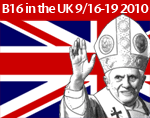
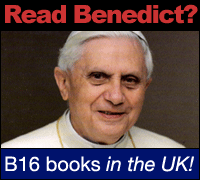
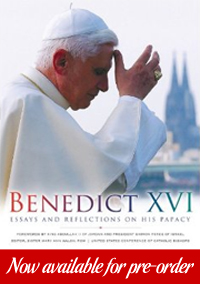
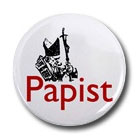

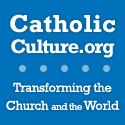
No comments:
Post a Comment